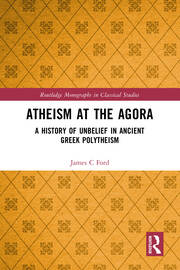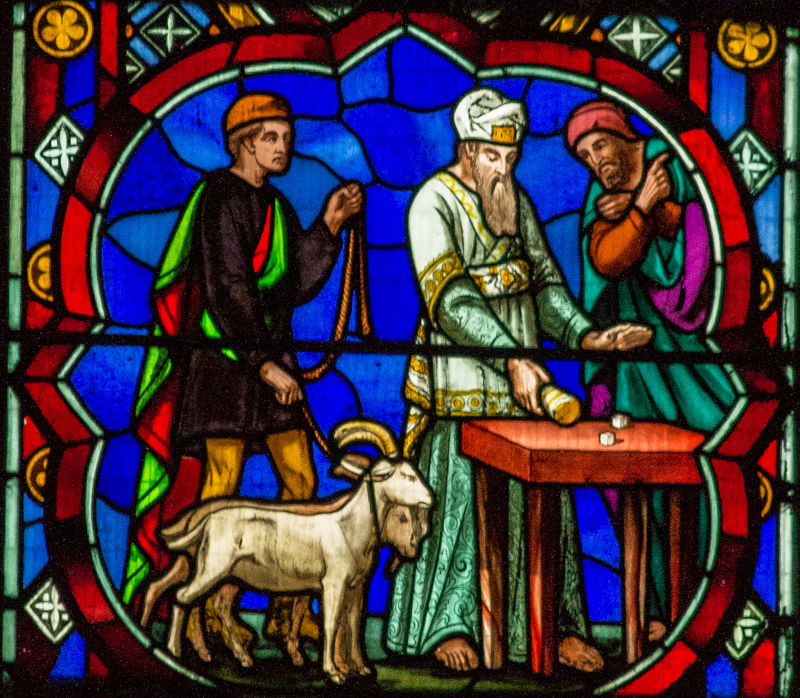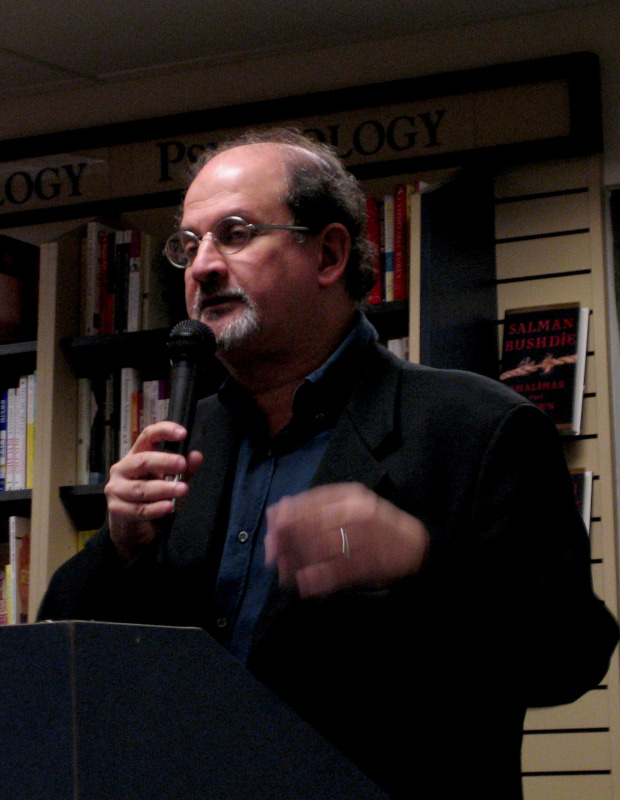Atheism at the Agora (IIIa): visibility, the New Atheists, and the Iraq War
In celebration of the publication of Atheism at the Agora: A History of Unbelief in Ancient Greek Polytheism (11th August 2023), the author offers a series of discussions on methodology, sources, and other issues in the study of the history of atheism.
For more about Atheism at the Agora and for purchase links, click here.

This is the third part of the series. In the first part, which you can read here, I reflected on some of the research that helped me reimagine the kinds of themes, sources, and ideas that might help me build up a coherent picture of atheism in the ancient world. In this second part, which you can read here, my focus was on aspects of the definition of atheism that I have applied, with a discussion of the history of early Christian contests in (re)defining atheism. In this third part, my focus will be on the visibility of atheism in different contexts.
As I argue in my book, atheism is a consistent feature of human society: the visibility of atheism at different times and places has usually been argued to depend primarily on the differential survival of source material, which is itself influenced by a range of different pre- and post-depositional factors. In his excellent trade introduction to ancient atheism, Battling the Gods, Tim Whitmarsh argues:
In the Western world, it is only for ancient Greece, and later Greek-influenced Rome, that the scattered tesserae can be pieced together into a coherent mosaic. (Ancient China also had its atheists; but that would be a different story.) This is in part because vastly more material survives in Greek than in all other ancient languages (including Latin) put together… But it is not simply a question of density of evidence. Greece has bequeathed a diversity of material that is so unfortunately lacking for other ancient peoples: as well as the official record, as it were, Greek historians have the outtakes and the alternative versions. Greek history tells us about eccentrics, deviants, miscreants, and skeptics.
History is, so we are often told, written by the winners. Much of the labor of social history, from the mid-twentieth century onward, has been directed toward recovering the voices of those who do not loom large in the dominant script: women, slaves, children, the infirm, minorities. The book in your hands, by contrast, deals with a relatively small segment of ancient society. Most of those named in these pages were educated males from the upper tiers of Greek and Roman life (not because atheism is an exclusively elite, male prerogative, but because that narrow demographic sliver is disproportionately represented in our sources). Yet they too have often been airbrushed out of ancient history, or their significance minimized.
Whitmarsh 2016: 7.
Focusing on the survival of evidence only captures part of the picture. As I have discussed in the book and in earlier posts, questions of scope and definition in studying atheism artificially restrict study and the perceived body of evidence on atheism. Much more relevant content on atheism survives than is generally recognised, but as in the study of ancient Greece it remains as echoes embedded in source material rather than more explicit or direct statements or arguments about atheism.
Where these kinds of more direct source material on atheism do survive, we face questions of visibility and prominence of atheism at that time and place. In societies in which atheism was (and is) socially marginalised special factors must be at play not only in the survival of evidence but in the prominence, acceptability, and visibility of atheism in society. In Athens, towards the end of the fifth century and the start of the fourth, atheism is suddenly a hot topic. In the book I argue that this is for many reasons: in particular, because atheism is a useful scapegoat to explain the magnitude of suffering in Athens during the Peloponnesian war; and due to the nature of Greek religion as built on theological innovation driven by scepticism. This notion of a hidden social utility or purpose that makes it expedient to platform atheism is often the key explanatory factor.

East Window, Lincoln Cathedral, by Ward & Hughes, 1855; photographed by Jules and Jenny, reduced to 800×698.
New Atheism and the Iraq War
I want to take some time to think about the New Atheists: the most prominent example of a public movement directly advocating for atheism today. New Atheism was (and to some extent still is) a movement that gained prominence in the early 2000s, and has been advanced by a collection of public intellectuals, activists, and academics. This movement is generally imagined to be, and presents itself as, defined by logic, reason, and philosophy. Leading figures include evolutionary biologist Richard Dawkins, physicist Victor Stenger, neuroscientist Sam Harris, philosopher Daniel Dennett, philosopher A C Grayling, journalist Christopher Hitchens, activist Ayaan Hirsi Ali, and famous magician Penn Jillette. The individuals behind New Atheism are mostly not philosophers, and their concerns are not primarily philosophical: they share a strong voice and offer a range of arguments about culture and morality.
The New Atheist movement shot to prominence in the public imagination with Sam Harris’ 2004 End of Faith: Religion, Terror, and the Future of Reason, a bestselling book arguing that 9/11 was due to Islam, and more broadly a consequence of religious extremism.

Rushdie presenting at Mountain View, USA, Oct 2005, photographed by Ken Conley, reduced to 620×800.
The connections between the New Atheists and the Iraq war, American foreign policy, islamophobia, and conservative politics are well established but not well understood. However, the Iraq war connection in particular is the crucial explanatory factor in why the New Atheism became so visible in the theocratic US and UK, and Western capitalism more broadly. Few New Atheists were openly (or knowingly) directly campaigning for US interventionism in Iraq – beyond Christopher Hitchens whose Marxist credentials initially insulated him as a contrarian – it was a coalition of conservatives and erstwhile ‘liberals’ offering reluctant and guilty support.
Sam Harris’ campaigning clearly offered support for the Iraq war, but he has always remained reluctant when confronted about it directly:
“I have never written or spoken in support of the war in Iraq. This has not stopped a ‘journalist’ like Glenn Greenwald from castigating me as a warmonger (Which is especially rich, given that he supported the war. In fact, in 2005 he appeared less critical of U.S. foreign policy than I am.) The truth is, I have never known what to think about this war”
Sam Harris Response to Controversy 4th Apr 2004.
Richard Dawkins ostensibly did not campaign for the Iraq war either, but explained that “what I really objected to was the lying about the motives for going into Iraq”; he did, however, explicitly support the Afghan war on the same pretext of tracking down the Taliban who were supporting Al-Qaeda, who had been responsible for 9/11 (interview with Matt Kennard, The Comment Factory March 21, 2010). In 2004 when answering a question on his most ‘bullshit’ belief Penn Jillette named his belief that the US should not be at war in Iraq, alongside the belief they should not have entered WWII, WWI, or Vietnam, as a view that ‘doesn’t make sense’, observing that ‘peace isn’t always the answer’ (interview with Nick Gillespie, Reason Dec. 2004).

Penn and Teller at TAM6, photographed by Napolean_70, reduced to 800×414.
Despite the appearance of conflict between religion and atheism, in fact, the core axis of conflict was a perceived one between the civilising West and the barbaric East, in which the liberal intellectual needed to mount a leading charge:
“Increasingly, Americans will come to believe that the only people hard-headed enough to fight the religious lunatics of the Muslim world are the religious lunatics of the West. Indeed, it is telling that the people who speak with the greatest moral clarity about the current wars in the Middle East are members of the Christian right, whose infatuation with biblical prophecy is nearly as troubling as the ideology of our enemies. Religious dogmatism is now playing both sides of the board in a very dangerous game. While liberals should be the ones pointing the way beyond this Iron Age madness, they are rendering themselves increasingly irrelevant. Being generally reasonable and tolerant of diversity, liberals should be especially sensitive to the dangers of religious literalism. But they aren’t.”
Sam Harris, “It’s real, it’s scary, it’s a cult of death”, LA Times 18th Sept 2006.
The New Atheist movement offered a crucial vehicle for constructing Western, middle class, liberal support for the war in Iraq and American and UK wealth interests and imperialism abroad. That is exactly why it was propelled to prominence in US and British culture.
Wrapping up
My view here should not be confused with the argument that the New Atheists intended to utilise their movement and sympathy for atheism to produce an argument for Iraq or Western imperialism. I do not think that is accurate or particularly sensible. But it was the usefulness of the New Atheist movement to manufacturing support for Iraq among the liberal commentariat that led to their platforming and prominence, and underwrote the viability and visibility of their movement. In the next post I will look at the systems and mechanisms by which this movement was made visible, and then the consequences of this visibility for conceptions of atheism and movements and ideology in the US and UK today.


